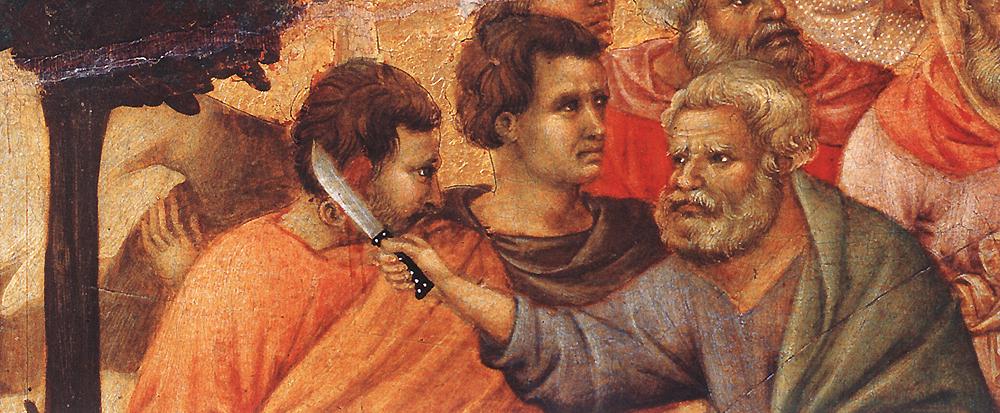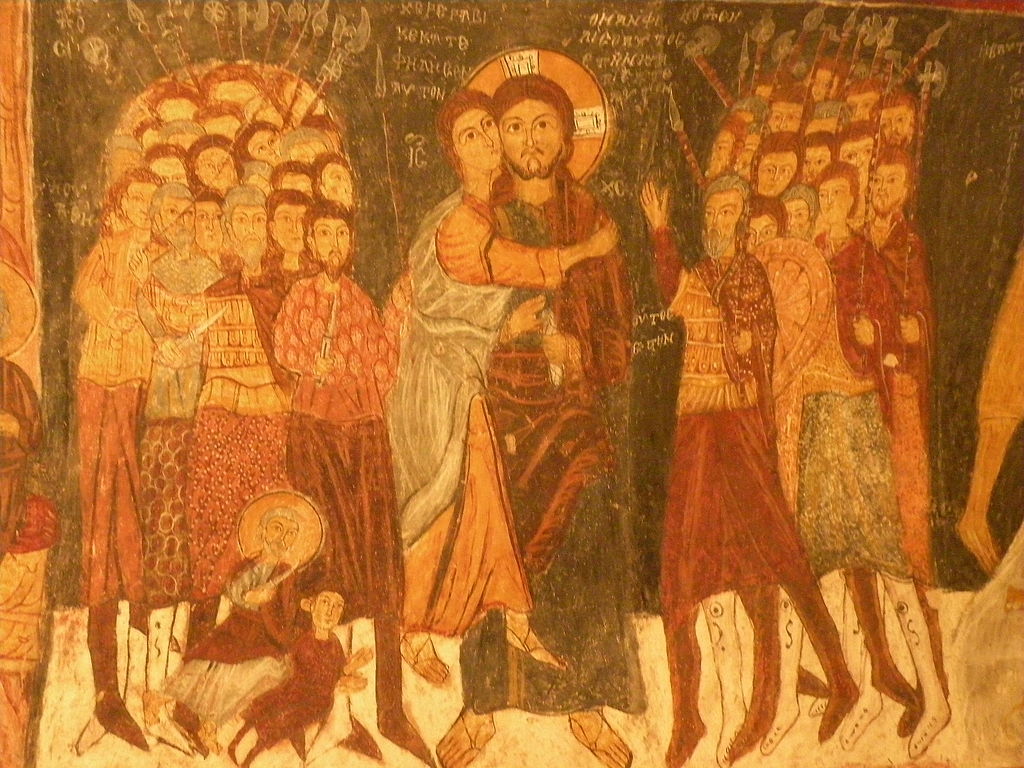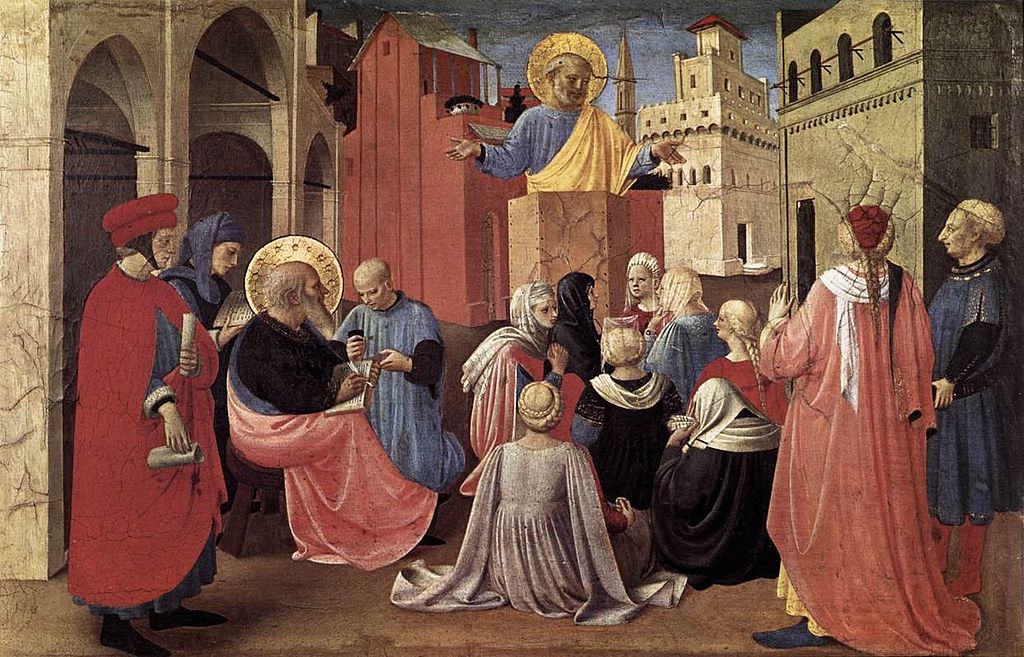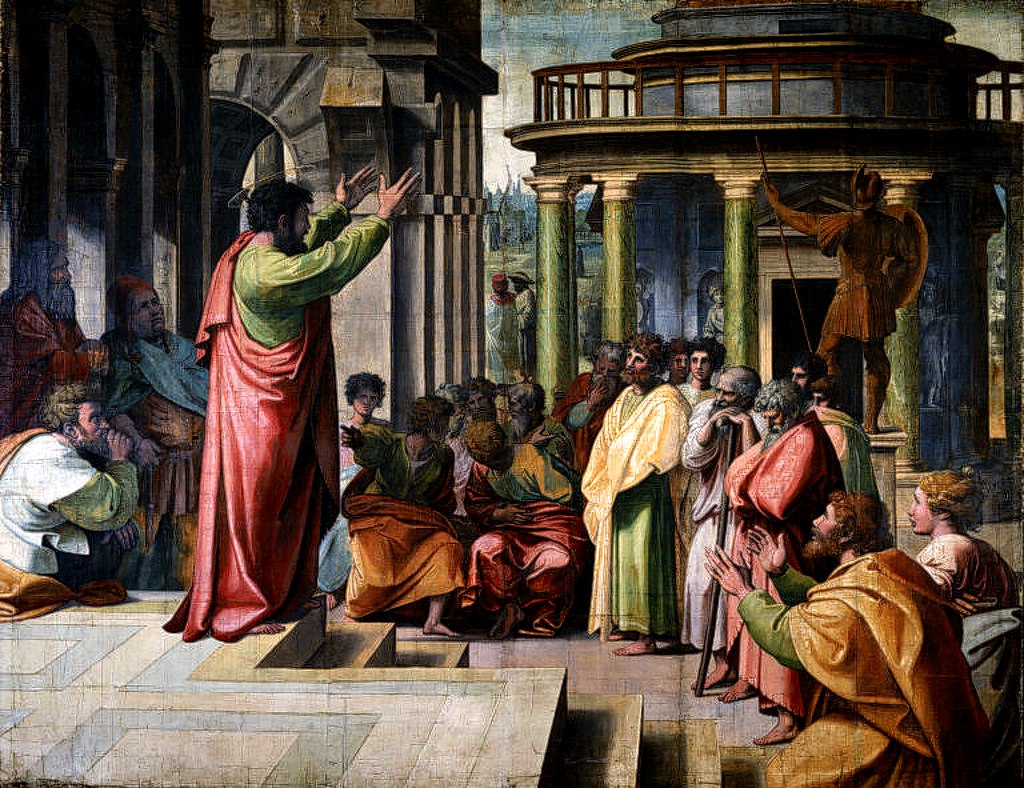5 Things People Were Probably Super Offended by in Christ’s Ancient Church
We live in a time when political correctness reigns supreme (for better or worse) and people take offense at the drop of a hat. The Church of Jesus Christ of Latter-day Saints has been under fire for a long time (understatement) over certain aspects of its history and policies. The internet is chock full of scathing statements about leader imperfections both past and present, controversial decisions, and doctrines that may clash with modern cultures. It almost seems like some people sit down and ask themselves: What can I be offended by today?
I find solace in the thought that some members (and non-members) will always be offended by certain aspects and events of Christ’s church, no matter the era.
And that got me to thinking: What might people in ancient times have been offended by in Christ’s time? Let’s take a look:
1. Peter physically assaulted a man

Then Simon Peter having a sword drew it, and smote the high priest’s servant, and cut off his right ear. The servant’s name was Malchus.
John 18:10
Just like it probably happened after this incident with Peter in ancient times, people in the modern era often cite examples of imperfection in leadership to destroy the credibility of the Church. When we get wrapped up in these kinds of complaints our focus is shifted away from where it should be. Peter’s actions in no way disprove the veracity of Christ’s teachings. They simply prove that Peter was human, just like the rest of us.
All too often we’re so distracted by Peter’s impropriety that we forget that Christ performed an incredible miracle immediately afterward. He promptly reattached the ear.
We are asked to be representatives of Christ at all times and in all places, but imperfect bishops, stake presidents, and General Authorities discredit the divinity of the gospel just as much as Peter’s act discredited the Christ—not at all.
2. Judas betrayed the Son of God

Then one of the twelve, called Judas Iscariot, went unto the chief priests,
And said unto them, What will ye give me, and I will deliver him unto you? And they covenanted with him for thirty pieces of silver. And from that time he sought opportunity to betray him …
And while he yet spake, lo, Judas, one of the twelve, came, and with him a great multitude with swords and staves, from the chief priests and elders of the people.
Now he that betrayed him gave them a sign, saying, Whomsoever I shall kiss, that same is he: hold him fast.
And forthwith he came to Jesus, and said, Hail, master; and kissed him.
And Jesus said unto him, Friend, wherefore art thou come? Then came they, and laid hands on Jesus, and took him.
An apostle of the Lord Jesus Christ—top leadership in His church—betrayed Him. Surely many followers were offended by this and concluded that the whole organization must be a sham. After all, how can Christ’s teachings be true if even his hand-picked leadership is throwing Him under the bus?
Many members have serious concerns about Church history and decisions leadership has made. They have a hard time looking past those obstacles, which is totally understandable. Polygamy, Priesthood policies, etc. are all hard topics to come to terms with. That said, I can’t think of many decisions that could possibly be worse than betraying the Son of God, and I’m sure that was a challenge for members of antiquity. Yet, that event doesn’t seem to challenge our testimonies in modern times. It’s simply something that happened.
Again, leaders both ancient and modern have, at times, been bad examples. But that does not discredit Christ’s church now, just as it did not then.
3. Peter disavows Christ

And when they had kindled a fire in the midst of the hall, and were set down together, Peter sat down among them.
But a certain maid beheld him as he sat by the fire, and earnestly looked upon him, and said, This man was also with him.
And he denied him, saying, Woman, I know him not.
And after a little while another saw him, and said, Thou art also of them. And Peter said, Man, I am not.
And about the space of one hour after another confidently affirmed, saying, Of a truth this fellow also was with him: for he is a Galilæan.
And Peter said, Man, I know not what thou sayest. And immediately, while he yet spake, the cock crew.
Yet another example of leadership impropriety (though there is an interesting argument to the contrary).
There are plenty of statements from Joseph Smith’s disgruntled compatriots claiming that Smith was just a complete fraud. That the so-called Restoration and The Book of Mormon are just made up. They said it, but that doesn’t make it true.
Even Christ’s senior apostle, Peter, publicly denied knowing Him.
Peter’s contemporaries surely had a problem with this. How could this Christ character be the Son of God when those closest to Him deny they even know him?
Again, concerns like this distract us from the miracles. They distract us from the previous witnesses we’ve had and lead us down the path of doubt and fear, instead of hope and faith.
4. Exclusion of the Gentiles and Samaritans

These twelve Jesus sent forth, and commanded them, saying, Go not into the way of the Gentiles, and into any city of the Samaritans enter ye not:
But go rather to the lost sheep of the house of Israel.
Sounds like a pretty racist commandment, right? It very easily could be interpreted that way, just as similar commandments have since been interpreted. That said, I do have confidence in the veracity of the Bible, and I do believe this was a real commandment given by Christ to his apostles. As such, I’m not in any position to challenge it—though I do wonder if any of Christ’s contemporaries used this policy as ammo against His divine campaign.
The parallels between this scripture and the Church’s past policies concerning people of African descent and Priesthood ordination are apparent. Was this more modern policy of divine origin as this biblical example was, or not? Frankly, I don’t know. But if not, it falls under the same category as numbers one through three of this article.
5. Inclusion of the Gentiles

While Peter yet spake these words, the Holy Ghost fell on all them which heard the word.
And they of the circumcision which believed were astonished, as many as came with Peter, because that on the Gentiles also was poured out the gift of the Holy Ghost.
For they heard them speak with tongues, and magnify God. Then answered Peter,
Can any man forbid water, that these should not be baptized, which have received the Holy Ghost as well as we?
And he commanded them to be baptized in the name of the Lord. Then prayed they him to tarry certain days.
And the apostles and brethren that were in Judæa heard that the Gentiles had also received the word of God.
When they heard these things, they held their peace, and glorified God, saying, Then hath God also to the Gentiles granted repentance unto life.
God is supposed to be the same “yesterday, today and forever” right? That very easily could have been a concern of ancient people when suddenly Peter received the revelation to suddenly begin preaching to the Gentiles. Did God just change his mind?
God is allowed to alter circumstances and develop whatever He’d like. It’s all part of His plan. He did it here with the sudden gospel inclusion of the Gentiles. He did it when Christ came and the Law of Moses was fulfilled. He does it all the time. The fundamentals of His Godliness have never changed. Good is still good, no matter what the current culture may say. Likewise, bad is still bad, no matter what the current culture may say.
Plenty more examples
People could have chosen to doubt and be offended by so many things.
- People probably struggled with the claim that Moses spoke to God through a burning bush. In modern times people struggle with the claim that Joseph Smith translated a book using a seer stone.
- Anciently, it would have been hard to accept that the Son of God was walking and teaching among the people of the Middle East in the flesh. In modern times we struggle to believe that He spoke to the people in ancient America as well.
- People have been offended by so-called “living prophets” since the beginning of time. That’s why Abinadi burned, Isaiah was sawed in half and why Christ himself was crucified. It’s no wonder believing in modern prophets is so difficult for some people today.
Don’t ignore your questions, but don’t forget that which you don’t question
This article runs the very real risk of marginalizing the very real concerns that members and nonmembers may have about the Church. That is not my intention. I also am one of those people. I have real, sincere questions that I have yet to find answers for. Some will probably never be answered.
But, as Elder Neil L. Anderson mentioned in the most recent General Conference, while I may not know everything, I know enough. I have a spiritual knowledge that Christ established a church in antiquity, just as I know He restored that same church in 1830.
If we focus too much on the fact that Peter cut a man’s ear off, we glaze over the fact that Jesus miraculously reattached it. And that’s just where our focus needs to be—on Christ.
Humans make mistakes, but we cannot let the sins, offenses, and improprieties of others (especially within the Church) distract us from focusing on Christ and what He taught.
We need to work through and move past our doubts through a lens of faith. If we do not, we may find ourselves at the end of our lives having been so offended by people, policies, doctrines, and drama that we forgot to live the gospel.


